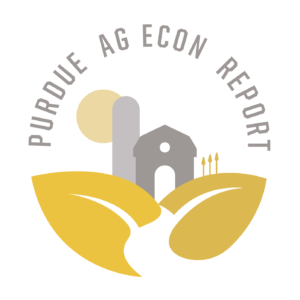Marketing Services Desired from Grain Elevators
June 17, 1993
PAER-1993-10
Ravindra G. Das, Student and J. William Uhrig, Professor*
Marketing Services Desired from Grain Elevators
Ravindra G. Das, Student and J. William Uhrig, Professor*
Following a period of rapid expansion in the late 1970s, the grain industry was confronted with excess capacity and low margins for much of the 1980s and early 1990s. During the mid-80s, government-subsidized storage programs enabled many elevators to maintain their financial stability. However, as grain carryover levels were reduced in the late 1980s and early 1990s, elevators returned to merchandizing of grain as their primary revenue source.
One of the responses to excess capacity and tight margins may be an attempt to define and offer new services. Therefore, elevator managers are interested in knowing what types of services would interest farmers. With this in mind, we set out to define a list of services and to survey farmers regarding interest in these services.
The list of elevator services to be assessed was developed from inter-views with three groups. The first was a group of elevator managers employed by a regional grain company with offices in Indiana and other midwestern states. Ideas for services were also solicited from professors at Purdue who work with the grain industry. Finally, a preliminary survey was shared with a group of farmers who attended the 1992 Purdue Agronomy Day. Responses from these farmers helped to refine the survey form and define new services.
The completed survey was then given to a group of 83 farmers who attended the 1992 Purdue Top Farmer Workshop. These commercial farmers came from eight states in the Midwest. The average farm size was about 1800 acres, and the farms ranged from 200 to over 4,000 acres.
The survey included 10 suggested elevator services. In addition, it requested other comments or ser-vices the farmer felt would be important and also asked if the farmer currently was using a farm marketing consultant. Respondents were asked to rank their interest in each service on a scale from 1 to 5, with 1 indicating very interested and 5 indicating not interested.
Farmers Respond
The following is a list of the services in order of importance as ranked by the respondents. The number in parentheses is the average weighted value given by the farmers.
- Farmers should receive a premium for grain and soybeans which exceed the minimum grade standard (1.48).
- Elevators should provide market information that is not easily accessible to the farmer. This may include basis trends, pricing patterns, seasonality of futures, market summaries, etc (2.13).
- The grain elevator should help farmers pursue specialty market opportunities throughout the world (2.22).
- Elevators should offer programs which allow options to be attached to cash grain contracts, to roll futures contracts, or to use futures to unprice grain (2.55).
- Elevators should take a daily grade for all truckloads from the same farm, rather than taking grades on each truckload (2.68).
- Elevators should offer an indemnity fund, financed through a grain checkoff, to provide protection for grain delivered under deferred pricing (2.87).
- Elevators should take a greater role in providing market education to farmers, including seminars, workshops, field days, and marketing clubs (2.95).
- Grain elevators should provide additional grain account record keeping such as a quarterly statement detailing the volume sold, its price, total revenue generated from sales, storage summary, etc (3.04).
- An elevator representative should make farm visits to explain various marketing alternatives, and develop marketing plans (3.12).
- Elevators should provide “condominium storage” where farmers own storage capacities on elevator property for their own use and rent unused storage to other farmers (3.93).
Evaluation of Farmer Responses
Farmers clearly have an interest in increasing returns from their grain, and any premiums which can be generated are highly ranked. In addition, farmers feel it is unfair to have a grain grading system which is based on minimum standards and would like an elevator to offer premiums for grain which exceeds minimum standards. This concern is also revealed when farmers indicate that they would like to have elevators take one daily grade rather than a grade on each truckload. They see the elevator as getting the advantage of “blending,” while the farmer is held to the higher standard of meeting minimum requirements on each truck load.
Education is an important service that farmers would like more elevators to provide. This is indicated by their interest in having more of the inside information used by elevator personnel to make their merchandizing decisions, in the elevator providing more direct education, and, to some extent, in on-farm visits. Of the surveyed farmers, 40.5 percent were currently using a marketing consultant.
Respondents in this survey clearly were interested in being able to use a full range of option and futures services at the elevator, rather than being forced to use an outside broker for these services. They were also interested in their elevator helping them to find new markets for specialty crops and acting as intermediaries between them-selves as growers and users of their products who may be in foreign lands. Increasing the security of payment was also important to these farmers, as indicated by their interest in an indemnity fund.
Several additional comments from farmers included interest in a longer term contract mechanism. This concept was to develop a contracting program which would allow a farmer to lock in a price and volume for three to five years.
Finally, if farmers in this survey are typical, elevator managers should not rush out to sell the elevator as condominium space, since these farmers did not indicate a desire to own a piece of the elevator.
* This project was completed as a Special Problem by Ravindra Das during his Senior year under direction of Dr. Uhrig.
